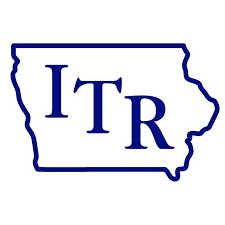Reynolds orders restaurants, bars, gyms closed
‘These are unprecedented times,’ governor says in statement

Iowa Gov. Kim Reynolds, in an unprecedented move, issued a state of public health disaster emergency declaration today mandating the closure of the state’s bars, restaurants, fitness centers, theaters, gaming facilities, senior citizen centers and adult daycare facilities.
The mandate is effective at noon today and continues through March 31. The move comes after the Iowa Legislature earlier today granted Reynolds expanded powers to stem the spread of the coronavirus, a highly contagious respiratory disease.
The bill, among other things, also increases Reynolds’ ability to transfer spending between state agencies and allows the governor to allocate up to 10% of the state’s $200 million Economic Emergency Fund to deal with efforts to combat coronavirus.
In the U.S., there are 4,661 cases of COVID-19 and 85 people have died. Iowa has 23 cases of COVID-19 and 199 people are being monitored, according to the Iowa Department of Public Health.
“These are unprecedented times and the state of Iowa will do whatever is necessary to address this public health disaster,” Reynolds said in a prepared statement. “I have authorized all available state resources, supplies, equipment and materials to combat the spread of COVID-19. The actions taken today are necessary to protect the health and safety of all Iowans and are critical to mitigating the spread of the virus.”
Specifically, Reynolds’ move closes bars, fitness centers, theaters, casinos and senior citizen centers. While the mandate requires restaurants to close, it allows the businesses to provide food through drive-through, carryout and delivery.
The proclamation also bans the gathering of 10 or more people at social gatherings like religious services and community events. Health officials believe banning gatherings will slow the spread of COVID-19.
Reynolds’ declaration follows what has already occurred in numerous other states. To date, orders similar to Reynolds’ proclamation have been issued in about 20 states.
Reynolds’ move comes less than 18 hours after a Monday news conference in which she said she wasn’t ordering the closure of restaurants, bars and other businesses. At the news conference, Reynolds said that while state officials were daily assessing the situation businesses “can address this without me ordering” closures.
Some restaurants and businesses had already taken steps to offer only takeout or delivery. For example, Exile Brewing Co. and Latin King Restaurant, announced on their websites that their dining areas were closed but patrons could order food through delivery or takeout. Gusto Pizza is offering frozen takeout pizzas.
On Monday, the Iowa Restaurant Association’s President and CEO Jessica Dunker said there was concern that restaurant closures would cause some businesses to close permanently.
“We’re very worried about the potential catastrophic effect on independent restaurant owners that have less ability to absorb these declines in traffic and business,” Dunker told the Business Record.
The mandate is effective at noon today and continues through March 31. The move comes after the Iowa Legislature earlier today granted Reynolds expanded powers to stem the spread of the coronavirus, a highly contagious respiratory disease.
The bill, among other things, also increases Reynolds’ ability to transfer spending between state agencies and allows the governor to allocate up to 10% of the state’s $200 million Economic Emergency Fund to deal with efforts to combat coronavirus.
In the U.S., there are 4,661 cases of COVID-19 and 85 people have died. Iowa has 23 cases of COVID-19 and 199 people are being monitored, according to the Iowa Department of Public Health.
“These are unprecedented times and the state of Iowa will do whatever is necessary to address this public health disaster,” Reynolds said in a prepared statement. “I have authorized all available state resources, supplies, equipment and materials to combat the spread of COVID-19. The actions taken today are necessary to protect the health and safety of all Iowans and are critical to mitigating the spread of the virus.”
Specifically, Reynolds’ move closes bars, fitness centers, theaters, casinos and senior citizen centers. While the mandate requires restaurants to close, it allows the businesses to provide food through drive-through, carryout and delivery.
The proclamation also bans the gathering of 10 or more people at social gatherings like religious services and community events. Health officials believe banning gatherings will slow the spread of COVID-19.
Reynolds’ declaration follows what has already occurred in numerous other states. To date, orders similar to Reynolds’ proclamation have been issued in about 20 states.
Reynolds’ move comes less than 18 hours after a Monday news conference in which she said she wasn’t ordering the closure of restaurants, bars and other businesses. At the news conference, Reynolds said that while state officials were daily assessing the situation businesses “can address this without me ordering” closures.
Some restaurants and businesses had already taken steps to offer only takeout or delivery. For example, Exile Brewing Co. and Latin King Restaurant, announced on their websites that their dining areas were closed but patrons could order food through delivery or takeout. Gusto Pizza is offering frozen takeout pizzas.
On Monday, the Iowa Restaurant Association’s President and CEO Jessica Dunker said there was concern that restaurant closures would cause some businesses to close permanently.
“We’re very worried about the potential catastrophic effect on independent restaurant owners that have less ability to absorb these declines in traffic and business,” Dunker told the Business Record.
Reynolds’ proclamation did not address regional malls or other retail stores. Some national retail stores, however, have already announced that their stores are closed. Bath and Body Works, for instance, issued a statement that all of their retail outlets were closed. The email urged patrons to buy their products online.
“The one thing [business leaders] really need to think of is safety first,” U.S. Rep. Cindy Axne told the Business Record. “I understand that sometimes that means a real concern on your bottom line. But if we don’t contain this, it’s going to be worse for everybody – in particular, our businesses who will feel the greatest impact for the longest period of time.”
Associate Editor Emily Barske contributed to this article.










